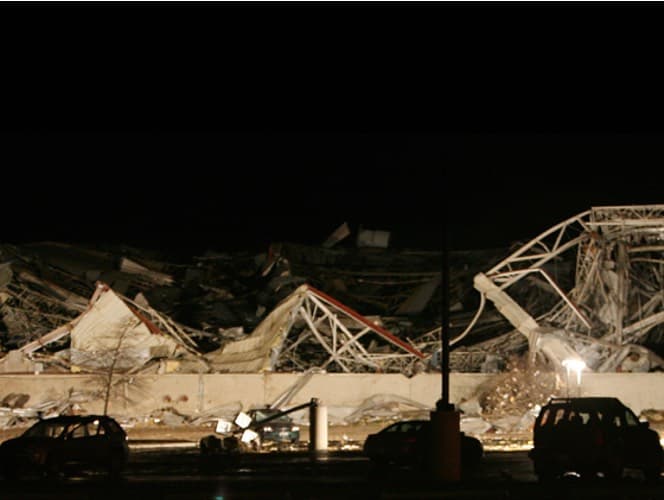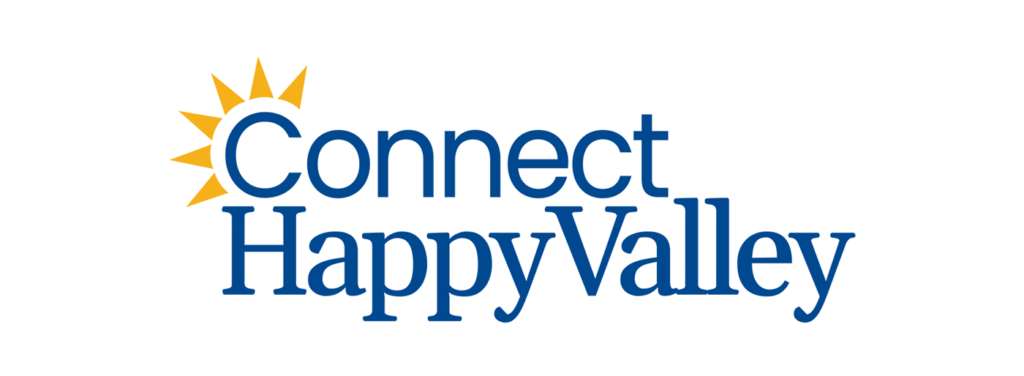Photo: AccuWeather
How AccuWeather is impacting manufacturing, industry and even forensics — all from Happy Valley
Gone are the days of a “wait and see” approach to weather. While it used to be something to be dealt with as it came, weather is now a carefully calculated science that can predicted down to the minute — at least at AccuWeather.
Vice president of AccuWeather for Business, Jonathan Porter calls AccuWeather “the combination of accuracy and weather.”
“It’s in our name,” he says. “Studies always show us as the most accurate source around the world for our users. We’re around to keep people safe, help them make the very best decisions when weather is a factor and help improve their lives.”
A Trusted Source
AccuWeather users range from casual app checkers to Fortune 500 companies. But whether users are checking the weather to find out if they can stay dry while walking the dog or to find out if they need to completely shut down a manufacturing plant, they know with certainty they’re getting information based on the latest science and technology advancing the meteorological field. And that’s been true since AccuWeather’s founding in 1962.
Dr. Joel N. Myers started AccuWeather with “closet beginnings” here in Happy Valley. (Dr. Myers literally rented a closet on Penn State’s campus.) But with a steady stream of experts always nearby at Penn State’s leading meteorology program, AccuWeather quickly became a top-tier trusted weather source. Today, AccuWeather is the weather source for over 800 newspapers, 900 radio stations and 200 television stations across the world.
AccuWeather + Business
There has been a quick evolution to how businesses look at weather. With predictive insights, they can and should be prepared for disruptive weather. Weather and climate events are causing trillions of dollars in damage and companies need to get ahead of it.
“Smart companies are increasingly capitalizing on our forecasts and warnings to keep people safe and increase profits,” Porter, who has watched this evolution over the last 17 years, says. “No one wants to be a business that’s caught off guard and people get hurt. Supply chains and transportation need every inch of efficiency, and weather is something they need to use to make the best decisions.”
Companies who work with AccuWeather for Business utilize powerful tools designed to provide specialized and customized weather intelligence. Every company has weather risks, and they vary by industry and by company. The AccuWeather business team works closely with businesses to pinpoint their greatest risks and help mitigate them by providing a unique view and set of services. And there’s no limit to the industries that can benefit — AccuWeather currently serves over 50 different verticals, ranging from retail to forensics.
Companies Winning with AccuWeather Business
For the companies that are utilizing the state-of-the-art data provided through AccuWeather for Business, it’s a home run.
Caterpillar
Shutting down a Caterpillar manufacturing plant could cost up to $1 million every 15 minutes, meaning the brand doesn’t want to shut down if there’s not a credible threat at a location. On the flip side, Caterpillar teams don’t want to be caught unprepared. AccuWeather has issued warnings for its business customers at Caterpillar’s specific locations when no one else provided a warning.

Several years ago, a tornado flattened a Caterpillar location in Mississippi. AccuWeather meteorologists detected a tornado developing 25 minutes before it struck the facility. They issued a warning and the Caterpillar team inside was able to get to safety. The building was completely destroyed, but not one employee had a scratch, because they had all been moved to shelter solely based on AccuWeather’s warning—they didn’t receive it from any other source.
Railways
“We service every Class I railroad in North America. We watch every mile post on those rail networks… and we have many, many examples of where we’ve stopped trains from going into perilous situations,” Porter explains.
One example from just a few years ago: Union Pacific had a tornado cross right on their track. AccuWeather was able to provide a 35-minute warning in which Union Pacific was able to stop four trains, two on either side of the tornado, and the engineers and locomotives saw the tornado cross well-ahead of them, while they were safely at a distance because of the warning.
“No train derailed. No hazardous material spilled. Nobody hurt or worse. And they were back up and running within a couple of hours,” Porter says.
Lowe’s
Lowe’s uses AccuWeather for Business to inform their teams of weather risks and impacts in various locations. The company uses weather forecasts to predict what customers will need and increase supply so that, while other companies are running out of flashlights and batteries with a pending hurricane, Lowe’s can continue providing needed products to customers, which is exactly what happened before Hurricanes Harvey and Sandy.
The Signal in the Noise
Porter points out that AccuWeather is not just providing warnings, the teams are assessing whether other issued warnings are relevant. If a government-issued warning is affecting a large region, there may be no reason to bring an entire plan to a halt or take a staff to shelter. There’s a two-way, collaborative line of communication that exists between the customer and the team at AccuWeather, which allows everyone to make the very best decision in a specific scenario.
“There’s a lot of weather noise, but we’re the weather signal as to what’s going to happen at their specific locations,” Porter says. “And that’s very valuable to our business partners. They can call day or night when they are facing a decision… We’re not only conveying what’s the most accurate forecast we expect, but also what are the guideposts and the level of confidence.”
A Home in Happy Valley
“Being here in a very innovative community with a lot of diverse ideas and access to people from a technology and science perspective across all the different types of expertise that we need at AccuWeather to run a business, a big global business, like we do, it’s been a great place to be our home,” Porter says. “We know the community is very proud of what we do… We were cited in a congressional report as having a more accurate forecast earlier than anyone else… It’s exciting that we can have that kind of global impact here in [Happy Valley].
”Ever since Dr. Joel N. Myer started AccuWeather in 1962, Happy Valley has been its home. With AccuWeather’s growth, several other locations have sprouted across the world — including locations in Mumbai, Dublin and Montreal, to name a few — but the headquarters remain here.
“Our home is here in Happy Valley,” Porter says. “And we’re really proud of that.”






